
31 Courses

Curriculum (CU)
(CU) Approaching Anti-Bias with Young Children 2026
Throughout this course, teachers and childcare providers will learn how to educate young children using an anti-bias and multicultural approach.

Curriculum (CU)
(CU) Block by Block: Building the Future of STEM 2026
Block play is a great way to explore STEM concepts. Throughout this course, you will learn that blocks can be more than blocks. Students will learn how block play can encourage exploration and expand their problem-solving skills.

Curriculum (CU)
(CU) Child-Initiated Learning: Empowering Young Learners 2026
Child-initiated learning is an educational approach where children take the lead in their learning process, making choices and decisions about what and how they want to learn. This method fosters creativity, independence, and a love for learning. This course will provide educators and parents with the knowledge and strategies to support child-initiated learning effectively.
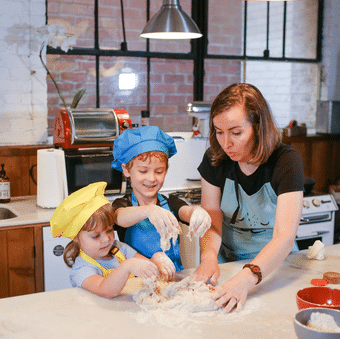
Curriculum (CU)
(CU) Cooking for Learning: Bringing Culinary Adventures into the Classroom 2026
Cooking in the classroom is a hands-on way to connect learning with everyday life. This course equips educators with the knowledge and tools to incorporate cooking activities into their curriculum, providing children with opportunities to explore various learning domains while working with real ingredients, measurements, and recipes. Through this course, educators will learn how to integrate cooking activities into their lesson plans, manage safety concerns, and create an engaging culinary learning environment.

Curriculum (CU)
(CU) Creating a Secure Environment: Responsive Routines and Relationships for Infants and Toddlers 2026
No two children are the same, nor should their care routines be. In this course, participants will learn how to tailor routines and responses to meet each child's individual needs, taking into account temperament, developmental stage, and family preferences.

Curriculum (CU)
(CU) Creating a Welcoming Environment For All Who Enter 2026
When families enter a childcare center, they want to feel welcome. They are looking for a place that could be considered an extension of their home. This course teaches you how to make your families feel welcome in your center and classroom.
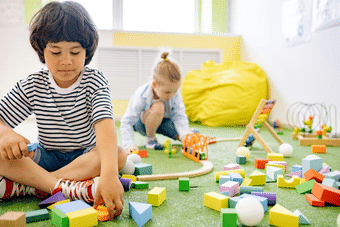
Curriculum (CU)
(CU) Creating an Optimal Environment for Children's Development 2026
This course explores how educators, caregivers, and parents can design and implement environments that foster both play and learning, which are key to supporting a child's overall development. The course consists of five comprehensive lessons, each focusing on different aspects of creating an optimal environment for children's cognitive, social, emotional, and physical growth. This summary provides an in-depth overview of each lesson, highlighting the core concepts and strategies discussed throughout the course.

Curriculum (CU)
(CU) Curiosity Unleashed: Interactive Science For Preschoolers 2026
Welcome to "Curiosity Unleashed: Interactive Science for Preschoolers" This course is designed for early childhood educators looking to enhance their understanding and teaching of science concepts in preschool settings. Through engaging activities and explorations, educators will learn how to foster curiosity and scientific thinking in young children
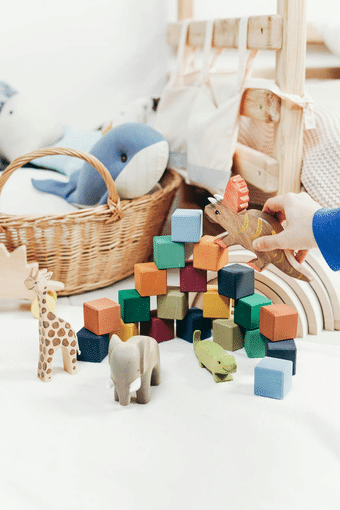
Curriculum (CU)
(CU) Designing Developmentally Appropriate Toys and Activities 2026
Children learn a lot from what they play with. Many toys have labels that state what age they are good for. However, that is not the only thing to consider when looking for toys or creating activities in your classroom. Throughout this course, you will learn different ways to identify if a toy or activity is developmentally appropriate for the students in your classroom.
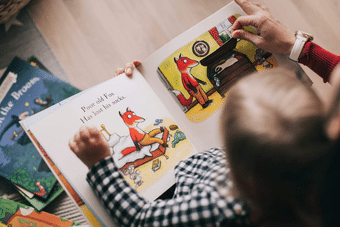
Curriculum (CU)
(CU) Effective Story Time in the Classroom 2026
Even at a young age, children love to listen to stories. It does not matter if it is a real story or one you made up. Throughout this course, you will learn the value of literature for children and how to keep them engaged during Storytime.
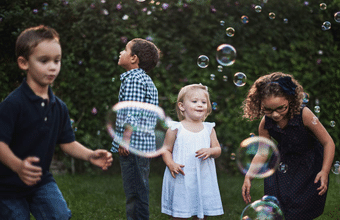
Curriculum (CU)
(CU) Effective Strategies for Working with Mixed Age Groups in the Childcare Classroom 2026
When in childcare, there are some times when you may have mixed-age groups in the same classroom. Throughout this course, you will learn how to manage all the different ages in the same room. You will learn different ways to identify their needs and ensure that everyone in the classroom is meeting their developmental stages.

Curriculum (CU)
(CU) Embracing Uniqueness: Celebrating Every Child's Individuality 2026
Every child is unique in their own way. Throughout this course you will learn to identify different behaviors and learning styles. You will learn how to adapt your teaching to accommodate all students.

Curriculum (CU)
(CU) Empathetic Communication 2026
This course focuses on developing the skills to connect with others through understanding, compassion, and active listening. Participants learn techniques to navigate difficult conversations, build trust, and foster meaningful relationships in personal and professional settings. Topics include recognizing emotions, responding empathetically, and improving verbal and non-verbal communication.
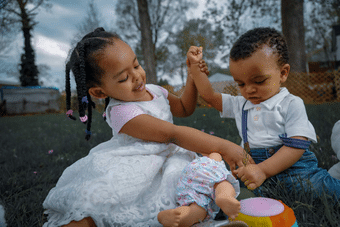
Curriculum (CU)
(CU) Empowering Conversations: Guiding Children Through Race and Bias 2026
This course will guide educators and caregivers on how to talk to children about race, teach them to recognize bias, and equip them with the tools to create inclusive and respectful communities.

Curriculum (CU)
(CU) Friendship Development 2026
Friendship begins at a young age. Throughout this course, you will gain an understanding of what friendship is at different ages and how to promote friendship and social skills for young children.

Curriculum (CU)
(CU) From Restless To Restful Mastering Calm in The Classroom 2026
From Restless to Restful: Mastering Calm in the Classroom is designed to transform rest time from a source of stress into a restorative and peaceful part of the day. By understanding the developmental value of rest, creating a well-designed rest time environment, managing smooth transitions, and addressing common challenges, educators can foster a calm and supportive atmosphere where all children can thrive. This course equips educators with practical tools and techniques to ensure that rest time becomes an opportunity for children to recharge physically, emotionally, and mentally, resulting in a more harmonious and productive classroom environment.

Curriculum (CU)
(CU) Gardening With Children: A Hands On Approach To Nature And Learning 2026
This course is designed for early childhood educators, caregivers, and parents who wish to engage children in gardening as a fun, educational, and hands-on experience. Through three comprehensive lessons, participants learn about the developmental benefits of gardening, hands-on gardening practices, and the importance of harvesting, sharing, and environmental stewardship. The course emphasizes experiential learning, nurturing curiosity, and fostering a connection with nature while developing essential life skills in young learners.

Curriculum (CU)
(CU) Integrating Music in The Classroom 2026
Children respond to music and movement from a young age. In this course, you will learn how to integrate music throughout the day in your classroom and how it can help students express themselves.

Curriculum (CU)
(CU) Introducing Developmentally Appropriate Literature to Young Children 2026
By embracing the principles and practices discussed in this course, you will be equipped to create enriching literary experiences that nurture the growth and development of the young learners in your care.
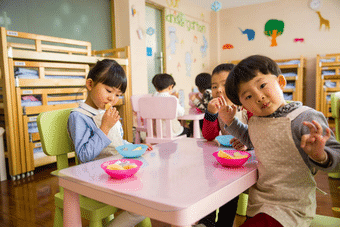
Curriculum (CU)
(CU) Little Meals, Big Lessons: Supporting Mealtime for Early Learners 2026
This course highlights the significance of mealtime in promoting not just healthy eating habits, but also social, emotional, and cognitive development. Each lesson offers practical strategies and guidance for encouraging independence, facilitating social interactions, managing common mealtime challenges, and ensuring safety and hygiene.
